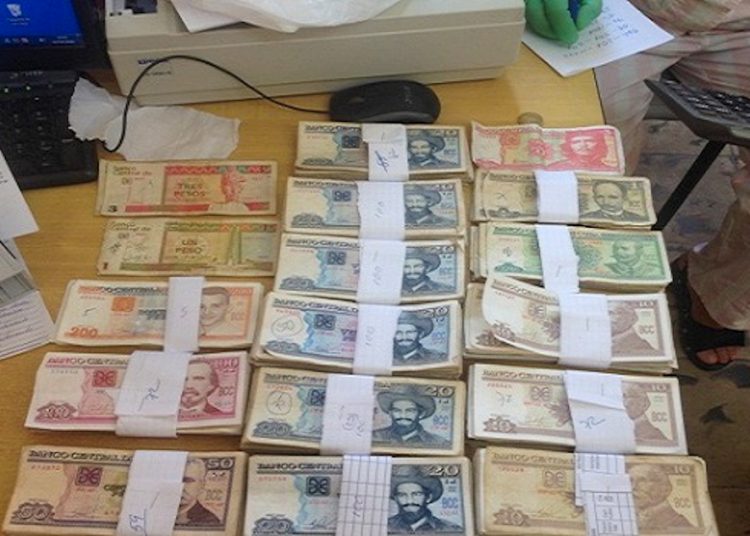A police investigation uncovered “diversion” of food and corrupt accounting procedures in Villa Perlazúcar, the first isolation center for COVID-19 suspects in Cienfuegos, located on the outskirts of that city in central Cuba.
The inspectors of the Cuban Ministry of Interior (MININT) in charge of the investigation discovered “food shortages” ―especially chicken―in the center’s storage room, in addition to “administrative violations constituting a crime,” the newspaper 5 de septiembre reported this Thursday.
During the investigation, the authorities occupied 25,251 Cuban pesos (CUP) and 14 convertible pesos (CUC) in a backpack belonging to the center’s administrator, who tried to justify the money as a result of sales made to the center’s workers, but without documentation that would back them, according to the source.
Given the signs of “lack of control,” the Bureau of Criminal Investigations (OIC) of MININT, in charge of the investigation, requested a supervision action of the enterprise, in which they verified a preliminary economic effect of 45,910.24 CUP.
The revised documentation shows that, for several days, the number of meals that were declared were well above what the villa actually had.
Major Ángel Lorenzo García, an ICO officer who is conducting the process, said that statements by the pantry worker who took food to the sick, refer that she never distributed the entire amount of chicken, as established by the documents from the store room, according to the local media.
Investigators revealed that the villa director sent seven boxes of chicken to some of his friends. They also discovered links between the official and the manager and storekeeper of the Escambray Restaurant, where they intended to sell the allegedly stolen goods.
“Descontrol y malas prácticas” en Empresa de Astilleros de Cuba
According to Major García, quoted by the source, it was shown that the managers of Villa Perlazúcar inflated chicken prices, making more expensive the product that was billed to the Ministry of Public Health.
As a result of the investigation―which is still open―there was a report for the crime of embezzlement, established in the Penal Code in article 336.1.
According to the media, the commission of these crimes in the context of the COVID-19 pandemic constitutes “aggravated criminal responsibility.”
Since the coronavirus pandemic began, the Cuban authorities have implemented a group of measures aimed not only at containing transmission, but also at increasing control of state resources, at a time when the island is going through a complex economic situation.
This is why police operations have been strengthened and the results of some of them have been disclosed in the media, an unusual practice on the island now aimed as a public lesson for those who are caught committing crimes.










